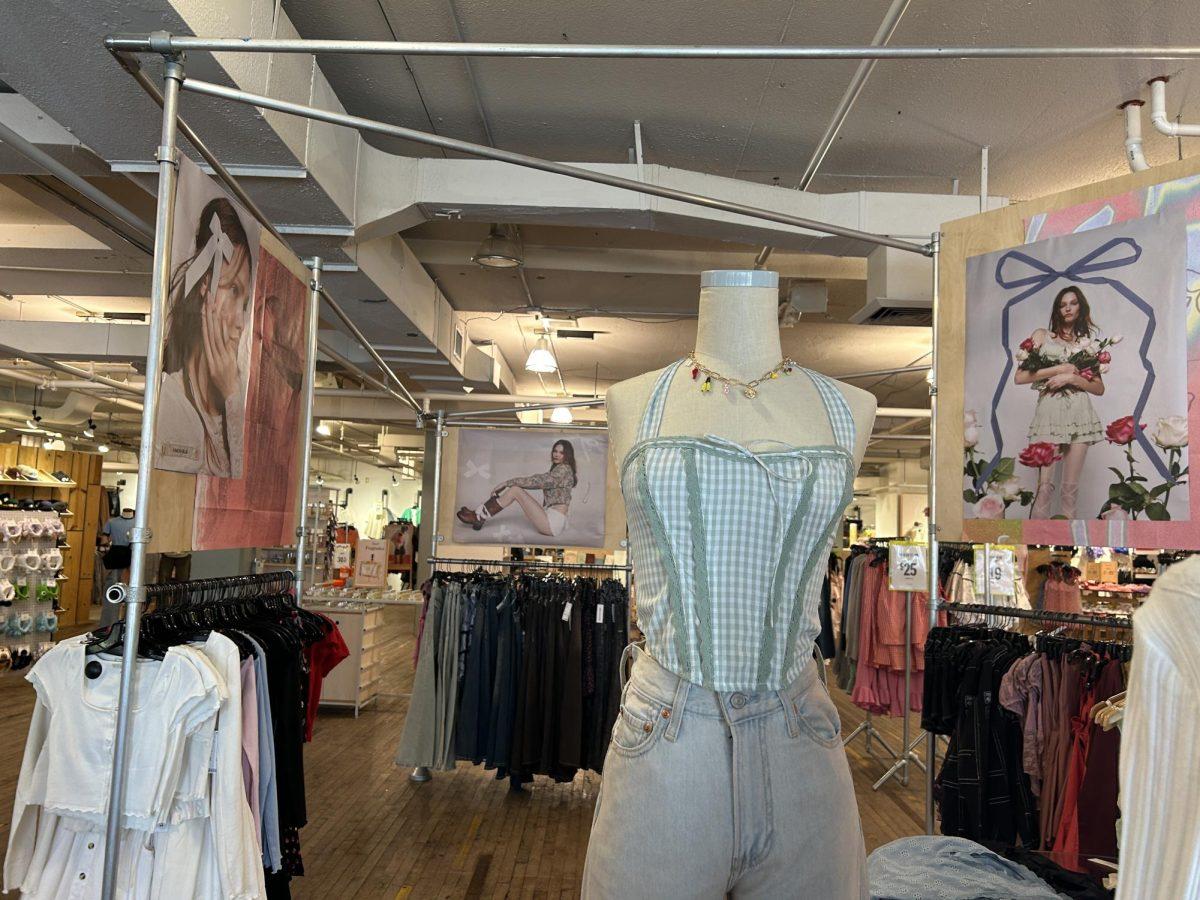What happens when a brand’s name becomes bigger than the brand itself? We don’t want to admit it, but each of us obsesses over brands, buying into a store or label’s identity. Items with labels etched across them have launched faster than Ben & Jerry’s ice cream will sell out on Valentine’s Day. But why are we so interested in wearing an item of clothing covered in someone else’s name?
Fashion’s recent obsession with name-calling can be dated back to the beginning of Marc Jacobs’ tenure at Louis Vuitton, when he made the brand high-end rather than outdated. Walk around any street in Madison and chic women carrying bags covered in the iconic LVs will dart past you. Yet according to urban legend, only 1 percent of all the Louis Vuitton bags in the world are real. One percent. Even though we know that, seeing a woman or man with this pattern brings to our minds unequivocal ideas of luxury and status. The label says more than just the words Louis Vuitton. It says, “I am everything Louis Vuitton empowers me to be.” Other people see that and read into the heavily calculated idea of identity that those LVs market.
What draws people to the Tory Burch “Reva” flat — a ballet shoe with an enormous “T” — as opposed to a less recognizable piece? Sure, the shoes aren’t cheap, but a knock-off can say the same thing, and more expensive shoes exist without a label. Money is less of a draw than the name: it’s more of a statement of membership into a club. Take the Alexander McQueen skull scarf; it’s an iconic piece, but those who don’t know the designer will see you as the weird girl with the goth scarf. Buying these pieces is not merely a symbol of wealth or status, but a pledge of allegiance to an image. We live in an era where image is everything: celebrities get picked apart for wearing the wrong color and it has become a step in a relationship to be “Facebook official.” But is our obsession with labels ruining the idea of a unique identity?
Having a wallet with a label people recognize becomes more important than agreeing with the designer’s aesthetic. If brand knowledge increased and everyone stalked the runways before buying a piece, would this change the trends? Perhaps our buying trends would allow the fashion houses to design purely to realize a vision, to create fashion as art rather than merchandise. It is an unrealistic, utopian idea that fashion can exist without business. This exists in realms other than just high-end fashion. We shop at stores that we think fit our identity, buying into the preconceived notion that Urban Outfitters means we look hip and cool. Of course it might be the case that we find clothing we love more at one store than an other, but we should stop buying items simply for their label.
Although some of this label-obsessing has to do with proving a status or symbol, much of it is showing that you’re in the know, aware of the trends. We have to stop caring. It doesn’t really matter if people recognize the designer wallet you are wearing if you are rocking one from Target that you love. Our culture is obsessed with these recognizable labels because, in a world driven by social media presence, touting a Michael Kors bag becomes one more way to show the world who we are. We need to stop this obsession, and realize that brands are not everything. Look for what you like, not what the world might approve of.



















